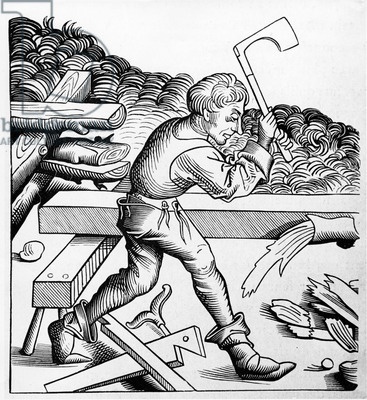Dan and I go way back although we hadn’t met or interacted directly before; he was in at some of the earlier Forge days and has good memories. It’s nice to talk with someone with those.
The discussion began here in Compartmentalization/Defecting Luddite and it seemed to him to move best into Consulting, so here we are, with Primeval Veil (working title). It probably won’t surprise you that I was a little uncertain about whether I would be a good consultant, and went into it ready to say, “Maybe not me.” But it turned out to be a great fit after all!
Some of you may be interested to see how I manage Forge-ish think-ish talk in real life about real things.
I’m looking forward to getting into the practical end of some of the things we talk about, which I’ll list here:
- When player-character perceptions are played as wholly the GM’s purview, including if and when to roll, and all such rolling is kept secret … then what is stated in ongoing, non-rolled terms regarding what the character sees and what they “know” from it?
- If the specific qualities of that kind of information are also intended to reinforce the non-modern, non-causal, non-material thinking which characterizes the setting (and indeed the entire game), then how is that done specifically for this game?
- Given this “weirdness,” or perhaps better other-worldliness, for which “world” means our notions of proper strategic investigate-defeat plot and problem thinking, how is it conveyed or summarized effectively prior to play?
- What combination of choice, randomization, and creativity are involved in making a character, specifically those which reinforce both the otherworldliness and the specific allocation of perception and information that will be observed in play?

